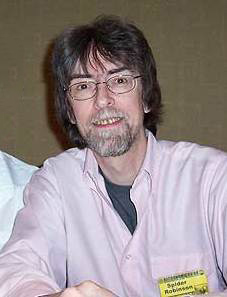A Quote by Laurie Anderson
Writers want to summarize: What does this mean? What did we learn from this? That's a very 19th-century way of thinking about art, because it assumes that it should make our lives better or teach us something.
Related Quotes
The Anglo-American tradition is much more linear than the European tradition. If you think about writers like Borges, Calvino, Perec or Marquez, they're not bound in the same sort of way. They don't come out of the classic 19th-century novel, which is where all the problems start. 19th-century novels are fabulous and we should all read them, but we shouldn't write them.
There's something about us using the word fascism and thinking about, "What is it? What does it mean, and what are the tenets of it?" I've been thinking a lot about folks denying what has happened in history, or just not acknowledging it. I think there's something that's fascist, and something that I think we could probably learn from, in terms of the energy in the world right now.
It took me better than a quarter century to learn, the hard way, that hard work at something you want to be doing is the most fun that you can have out of bed . . . to learn that the smart man finds ways to make everything he does be work; to learn that "leisure" time is truly pleasurable (indeed tolerable) only to the extent that is its subconscious grazing for information with which to infuse newer, better work.
I want to stay active. I want to find that mind-body connection every single day, and I want other people to have that because we spend our lives on our phones, at our desks. We're not thinking about our bodies and the mental connections we should be having, and those moments help us push through to live our best life.
What does purpose mean? It means the deepest desire for our short lives to mean something. . . . To speak a language of purpose is to return to first principles and to be able to answer, in plain English, the plain questions of Why? Why should we chip in to help someone else? Why should we defer gratification? Why should we care about the long term? Why should we trust anyone who seems to be limiting our ability to do what we want?
The very act of thinking about power in our lives and experiences creates a process of revelation and self-analysis that may even make us look at ourselves in a new light... thinking about power and its complex manifestations may not simply lead to a better understanding of the abstract complexities of society, but may have an effect on one?s own image and identity. Perhaps a warning label should be placed on the cover.
Jesus does not respond to our worry-filled way of living by saying that we should not be so busy with worldly affairs. He does not try to pull us away from the many events, activities, and people that make up our lives. . . . He asks us to shift the point of gravity, to relocate the center of our attention, to change our priorities. Jesus does not speak about a change of activities, a change in contacts, or even a change of pace. He speaks about a change of heart.
As you know, I am a novelist, and I really want to write novels. But I knew enough about the Dreyfus case to understand immediately why what happened to Dreyfus was not merely a cause celebre from the end of the 19th century, but an event that could be shown to teach us lessons of the greatest importance for our own time.
The arts have long been an integral and vibrant part of our nation's cultural heritage. In its many forms, art enables us to gain a deeper understanding of ourselves and of our society. Providing us with a unique way to learn about people of other cultures, it allows us to discover all that we have in common. At its best, art can beautify our cities, encourage economic development and social change, and profoundly affect the ways we live our lives.
Writers don't want to appear to be stupid. I don't know - maybe people become writers so that they can prove that they're not. Of course getting a book published doesn't mean that they're not stupid. At a certain point you have to stop trying to prove something and write because you need to think about something and want to communicate, in a very broad sense.




































